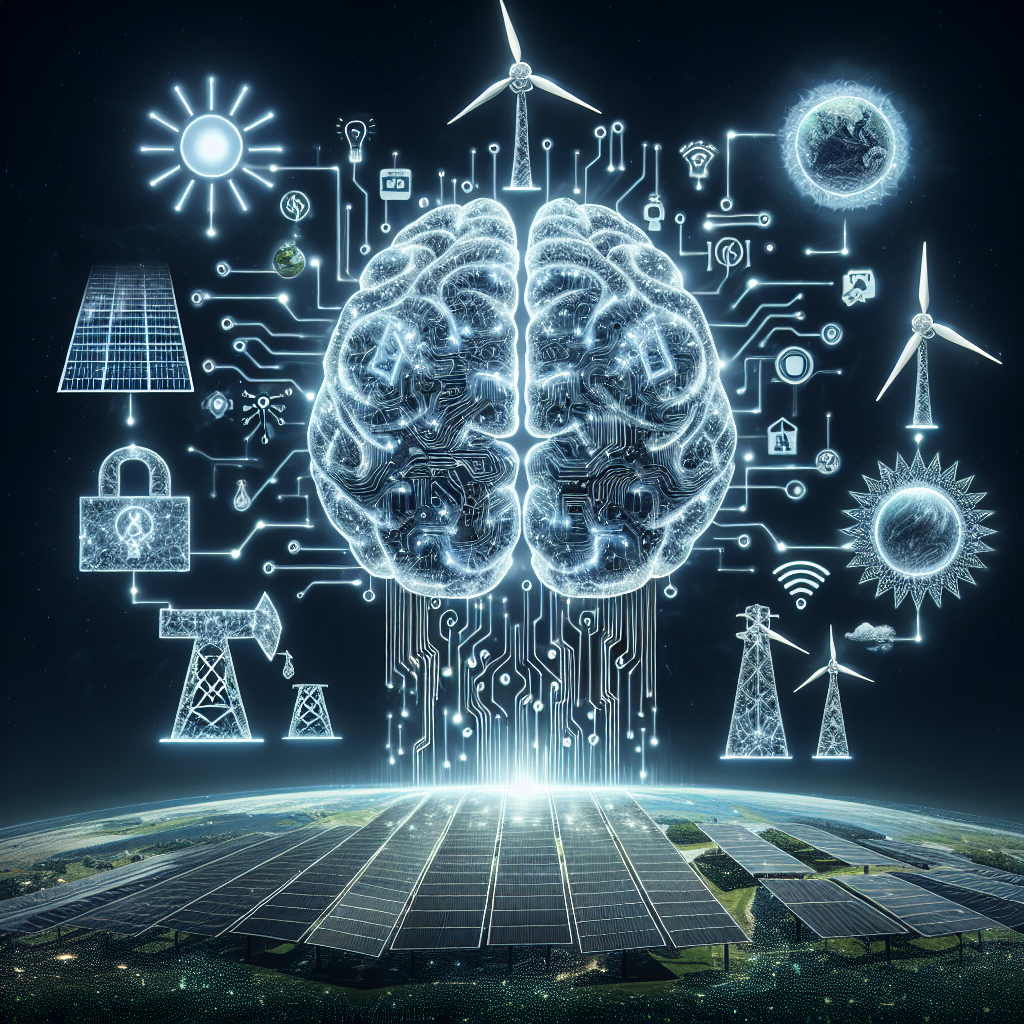AI Deployment in Energy: Increasing Efficiency
Artificial Intelligence (AI) is revolutionizing the way we generate, distribute, and consume energy. From optimizing power plants to improving grid reliability, AI is being used to increase efficiency and reduce costs in the energy sector. By leveraging AI technologies, energy companies can make better decisions, predict maintenance needs, and optimize energy consumption in real-time. In this article, we will explore how AI is being deployed in the energy sector to increase efficiency and drive innovation.
AI in Power Generation
One of the key areas where AI is making a significant impact is in power generation. AI-powered systems can optimize the performance of power plants, increase energy output, and reduce operating costs. By analyzing vast amounts of data in real-time, AI algorithms can identify patterns and trends that humans may not be able to detect. This allows power plants to operate more efficiently and effectively, leading to increased energy production and reduced downtime.
AI is also being used to predict equipment failures and maintenance needs before they occur. By continuously monitoring the performance of equipment and analyzing data from sensors, AI systems can identify potential issues and alert operators to take corrective action. This proactive approach to maintenance can help prevent costly breakdowns and reduce downtime, leading to increased reliability and efficiency in power generation.
AI in Grid Management
Another area where AI is being deployed in the energy sector is in grid management. AI-powered systems can optimize the flow of electricity on the grid, reduce losses, and improve overall grid reliability. By analyzing data from sensors, smart meters, and other sources, AI algorithms can predict peak demand times, identify potential grid congestion points, and optimize the distribution of electricity in real-time.
AI can also help utilities integrate renewable energy sources, such as solar and wind, into the grid more effectively. By predicting fluctuations in renewable energy output and adjusting grid operations accordingly, AI systems can help utilities maximize the use of clean energy sources and reduce reliance on fossil fuels. This not only helps reduce carbon emissions but also improves grid stability and reliability.
AI in Energy Consumption
AI is also being used to optimize energy consumption in buildings, factories, and other facilities. By analyzing data from smart meters, sensors, and other sources, AI algorithms can identify energy-saving opportunities and make recommendations to users. For example, AI systems can automatically adjust heating and cooling systems based on occupancy levels, weather conditions, and other factors to reduce energy waste.
AI-powered systems can also help businesses and consumers make smarter energy choices. By analyzing historical energy consumption data and external factors, AI algorithms can predict future energy demand and prices, allowing users to adjust their energy usage accordingly. This can help reduce energy costs, minimize carbon emissions, and increase overall energy efficiency.
FAQs
Q: How is AI being used in energy generation?
A: AI is being used in energy generation to optimize the performance of power plants, predict equipment failures, and increase energy output. By analyzing data in real-time, AI algorithms can identify patterns and trends that humans may not be able to detect, leading to increased efficiency and reduced costs.
Q: How is AI being used in grid management?
A: AI is being used in grid management to optimize the flow of electricity, reduce losses, and improve grid reliability. By analyzing data from sensors and other sources, AI algorithms can predict peak demand times, identify congestion points, and optimize the distribution of electricity in real-time.
Q: How is AI being used in energy consumption?
A: AI is being used in energy consumption to optimize energy usage in buildings, factories, and other facilities. By analyzing data from smart meters and sensors, AI algorithms can identify energy-saving opportunities and make recommendations to users, leading to reduced energy waste and increased efficiency.
In conclusion, AI deployment in energy is transforming the way we generate, distribute, and consume energy. By leveraging AI technologies, energy companies can increase efficiency, reduce costs, and drive innovation in the sector. From optimizing power plants to improving grid reliability and optimizing energy consumption, AI is revolutionizing the energy industry and paving the way for a more sustainable and efficient future.

